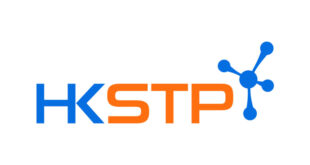- 89% of Singapore employers say that the pandemic has accelerated the adoption of Cloud Computing/ Machine Learning technologies in their companies
- They cite the obstacles to adopting Cloud Computing/ Machine Learning technologies are ‘the shortage of relevant in-house IT support’ (64%), ’employees lack of relevant skill sets’ (58%) and ‘the lack of financial resources’ (46%)
- Overall, a large majority (83%) maintain that Machine Learning will remain the most in-demand Artificial Intelligence (AI) skill in 2021, while 70% say they are willing to offer a premium for talent with AI and Machine Learning skills
SINGAPORE – Media OutReach – 5 February
2021 – Despite majority of Singapore employers
(89%) reporting that the COVID-19 pandemic has accelerated the adoption of cloud
computing and Machine Learning (ML) in their companies, obstacles abound. Singapore
business leaders say that the largest hindrance to adopting cloud computing and
ML technologies is the shortage of relevant in-house IT support (64%), amongst
other reasons such as ’employees do not have the relevant skill sets’ (58%) and
‘the lack of financial resources’ (46%).

These are some of
the key findings from the recently launched NTUC LearningHub (NTUC LHUB)
Industry Insights report on cloud computing and ML in Singapore. The report is based
on in-depth interviews with industry experts, such as Amazon Web Services (AWS)
and NTUC LHUB, and a survey with 300 hiring managers across industries in
Singapore.
While organisations
are keen to adopt cloud computing and ML to improve the company’s business
performance (64%), obtain business insights from Big Data (59%) and perform
mundane or tedious tasks (53%), a third of Singapore employers (32%) say their
companies have insufficient talent to implement cloud computing and ML
technologies.
To overcome this
shortage, companies say they have been upskilling employees that have relevant
skill sets/ roles (55%), and reskilling employees that have completely
different skill sets/ roles (44%). In a further show of how organisations were
willing to take steps to overcome this skills gap, three in five (61%) strongly
agree or agree that they will be open to hiring individuals with relevant
micro-credentials, even if these candidates has no relevant experience or
education degrees.
Looking to the
future, four in five employers (81%) agree or strongly agree that ML will be
the most in-demand Artificial Intelligence (AI) skill in 2021. Meanwhile, seven
out of 10 surveyed (70%) indicated they will be willing to offer a premium for
talent with AI and ML skills.
“The report reinforces the growing demand for a cloud-skilled workforce in
Singapore, and the critical need to upskill and reskill local talent”, said Tan
Lee Chew, Managing Director, ASEAN, Worldwide Public Sector, AWS. “The
collaboration across government, businesses, education and training
institutions will be instrumental in helping Singapore employers address these
skills gaps. AWS will continue to collaborate with training providers like NTUC
LearningHub to make skills training accessible to help Singaporeans, from
students to adult learners, to remain relevant today and prepare for the future.”
NTUC LHUB’s Head of
ICT, Isa Nasser also adds, “While much of the talent demand encompasses technical
positions such as data scientists and data engineers, businesses are also
looking for staff to pick up practical ML and data science skills sets that can
be applied to their existing work. That
is why in today’s digital age, most professionals would benefit greatly from
picking up some data science skills to enable them to deploy ML applications
and use cases in their organization. We highly urge workers to get started on equipping themselves
with ML skills, including understanding the core concepts of data science, as
well as familiarising themselves on the use of cloud or ML platforms such as Amazon
SageMaker.”
To download the
Industry Insights: Cloud Computing and ML report, visit
Source link
 Odisha Samachar Odisha Breaking News , Odisha Current News , Odisha News
Odisha Samachar Odisha Breaking News , Odisha Current News , Odisha News



